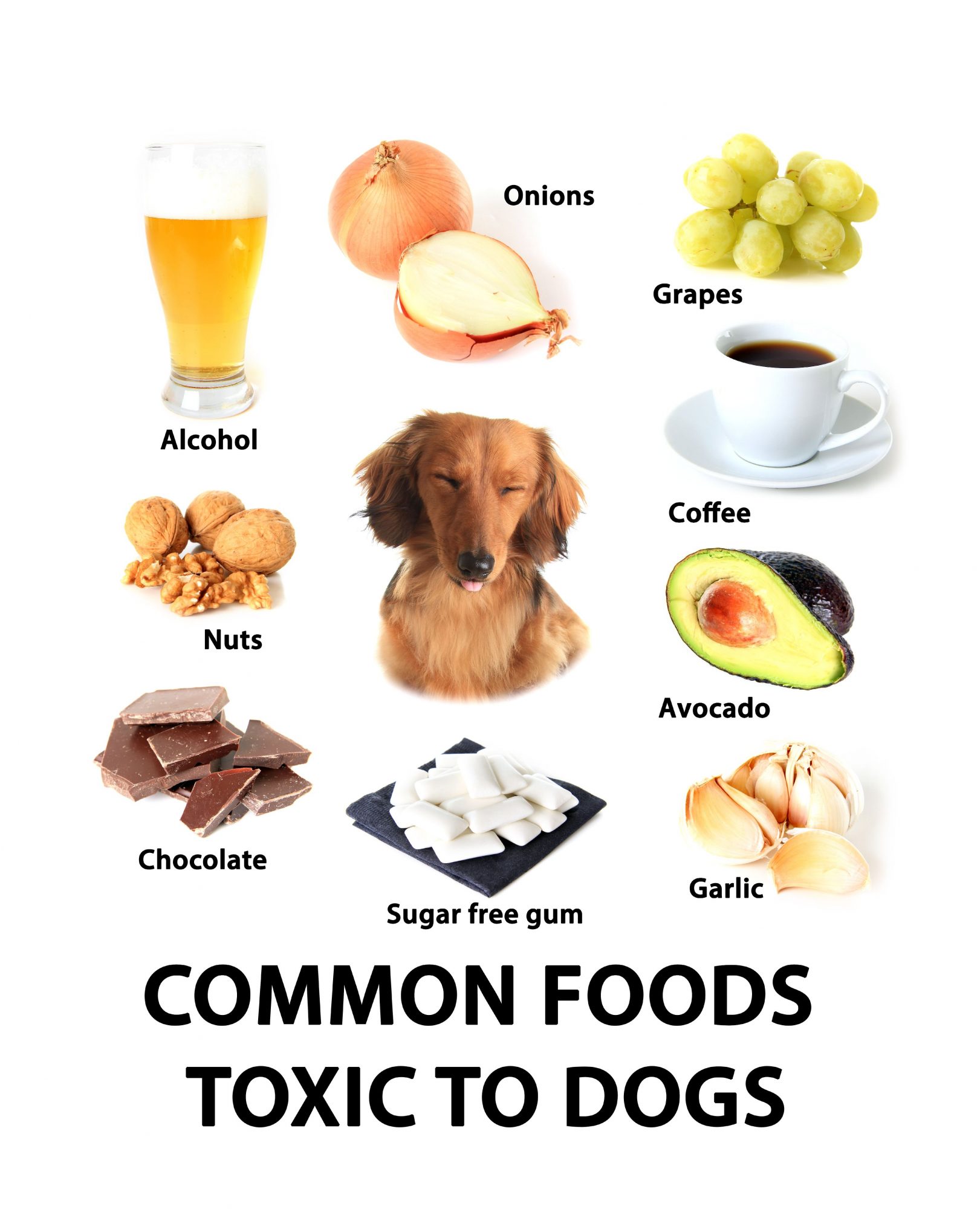Blog
Toxic Household Items to Keep Away from Your Pet

Your home should be a place of comfort and safety for your family– including your furry family members. Unfortunately, many common household items can pose a danger to the furry members of your family. To prevent a pet poisoning, it’s important to keep certain food, chemicals, and other items out of reach from your dog or cat.
What hazardous items do you need to be on the lookout for? The team at Ten West Bird & Animal Hospital has put together this helpful list of toxic household items to watch out for to keep your pets safe.
Unsafe Foods
The best way to keep your pets safe from accidental food poisoning is to follow this simple rule: human food is not pet food. Avoid feeding your pets table food, because a lot of sneaky ingredients could cause your pet to get an upset stomach, become severely sick, cause kidney failure, or even result in death. Be sure to keep these food items in particular out of reach from your animals:
- Grapes and raisins
- Chocolate
- Coffee grounds
- Garlic and onions
- Caffeinated drinks
- Raw yeast dough
- Any sugar-free candy, gum, or mints containing xylitol
- Raw or undercooked meat
Another type of food to keep out of your pet’s reach is chips, cereal bags, or any other type of processed food that comes in a plastic bag. If your pet gets ahold of these snacks in the bag and accidentally inhales plastic, they could choke or become seriously injured.
If you’re unsure if something is safe to feed to your pet, please give us a call first.
Alcohol and Marijuana: Nothing to Joke About
There is nothing funny or cute about having your pet join in on the party by giving them marijuana or alcohol. Just as it is for humans, different levels of alcohol or THC can be toxic and harmful to different pets, depending on their size and overall health. It can make them sick, cause vomiting or dizziness, restrict their breathing, or even result in death.
It is difficult to determine how much THC from ingested marijuana would be toxic for your pet. It varies from pet to pet depending on their size and body type. If the marijuana or THC is mixed with other chemicals, ingredients, or other potentially toxic materials in edibles (such as chocolate or artificial sweeteners, like xylitol) it could be even more disastrous and seriously harmful to your pet.
Cigarettes and e-cigarettes are also dangerous and toxic items for animals to get a hold of. You should never intentionally give alcohol, marijuana, tobacco or nicotine-containing products to your pets. If they accidentally get a hold of some, contact your veterinarian immediately. If possible, note down the packaging and dosage of whatever substance they ingested.
Medicine Cabinet Dangers
Keep your medicine cabinet items in the medicine cabinet, and not on the counter or dresser where your curious pet could potentially reach them. Items from the medicine cabinet that are toxic if ingested by your pet include:
- Toothpaste (includes xylitol or sorbitol, that can cause vomiting)
- NSAIDs (Advil, Aleve, Motrin)
- Acetaminophen (Tylenol)
- Antidepressants
- Sleep aids and benzodiazepines
- Birth control
- Cholesterol medications
This list isn’t an exhaustive one, and it’s best to keep all your medications stashed safely away. Many medications that are safe for human consumption are extremely toxic to your pets, and should be kept out of their reach.
Garage and Garden Chemicals
Keep your pets away from these harmful chemicals and items that can be found in your home, garden, yard, or garage:
- Insecticides and pesticide
- Rodenticides
- Lawn and garden fertilizer
Also keep your pets from nibbling any plants in your home or yard. Some plants, such as lilies and oleanders, can be extremely poisonous to your pets.
Play It Safe, Not Sorry
If you’re worried your pet may be experiencing a pet poisoning, call the ASPCA Animal Poison Control Center Hotline at (888) 426-4435. You can also reach the Pet Poison Helpline at (855) 764-7661. Both of these resources are fee-based.
The veterinarians at Ten West Bird & Animal Hospital are also here to assist you and your pet with any questions or concerns regarding your pet’s care at (210) 696-1700.
